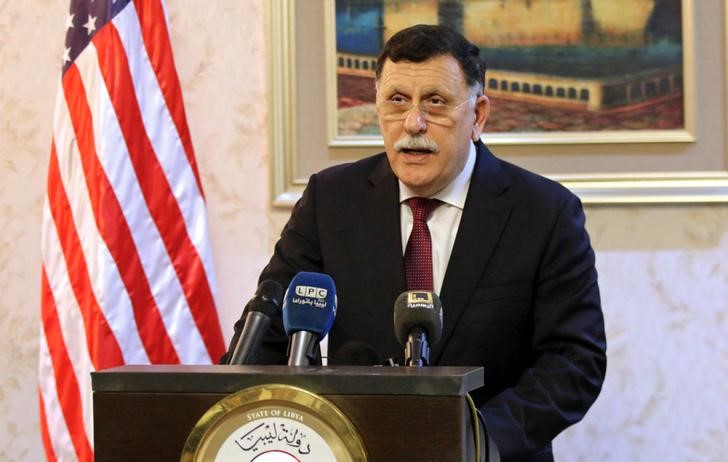TRIPOLI (Reuters) - The head of Libya's U.N.-backed government has called for parliamentary and presidential elections in March 2018, although his proposals will likely have to compete with other Libyan and international efforts to bring an end to the country's conflict.
Fayez Seraj, prime minister of the Government of National Accord (GNA), also called for a national ceasefire and the gradual merging of rival parliamentary bodies based in Tripoli and eastern Libya in a speech released late on Saturday.
Seraj said he was putting forward the roadmap because of his "determination to escape the current crisis and unify Libyans".
"I am confident that the national spirit will overcome the narrow personal interests, and invite everyone to offer compromise even if it's painful to do so," he said.
Agreeing on an election plan and holding nationwide polls would be a major challenge due to Libya's political divisions, continuing insecurity and bouts of fighting, and deteriorating infrastructure.
Libya slid into conflict after the uprising that toppled long-time Libyan leader Muammar Gaddafi six years ago. The country's previous elections, in 2014, led to the formation of rival governments and parliaments in Tripoli and the east, both backed by loose alliances of armed groups.
The GNA is the result of a U.N.-brokered deal to stabilise and unite the country that was signed in late 2015 with only partial support from political and armed factions. It has limited authority, and has been rejected by eastern-based factions aligned with military commander Khalifa Haftar.
Since arriving in Tripoli in March last year, Seraj has struggled to form a functioning government or tame powerful militias. A severe liquidity crisis, frequent power and water cuts, and failing public services have worsened living conditions for most.
